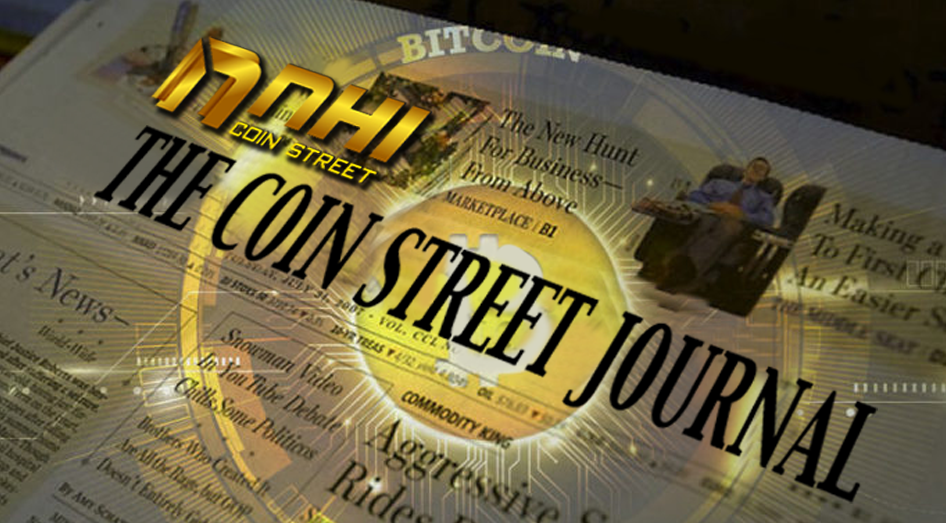THE COIN STREET JOURNAL
Market News - July 14th, 2023

Ripple Labs' Legal Battle and XRP's Market Impact: A Mixed Verdict with Far-Reaching Implications
In a recent court ruling, Ripple Labs achieved a partial victory against the U.S. Securities and Exchange Commission (SEC), which brought some clarity to the cryptocurrency industry’s regulatory landscape. While the judge stated that the sale of Ripple’s XRP tokens on exchanges and through algorithms did not constitute investment contracts, they ruled that the institutional sale of the tokens did violate federal securities laws. This ruling has had significant consequences, including XRP’s surge in value and the potential repercussions for the legality of its offering.
The Impact on XRP and BNB:
Following the court ruling, Ripple’s XRP overtook Binance’s BNB token to become the fourth-largest digital asset by market capitalization. XRP’s post-court ruling advance led to a valuation of $41.44 billion, according to CoinDesk data, while BNB’s market cap reached $40.57 billion with a 6.5% rally. Despite XRP’s market success, it’s important to remember the court’s verdict on Ripple’s violation of securities laws and the potential implications for the token’s offering.
Implications for Ripple and the Cryptocurrency Industry:
The court ruling against Ripple’s direct sales to institutional investors not only designates XRP as a security but also raises questions about the legality of its offering. This victory for the SEC sets a precedent for their legal actions against other cryptocurrencies, potentially impacting the broader crypto market. While the ruling offers some clarity, legal experts argue that it falls short of definitively settling the question of how U.S. law defines a digital asset as a security and under what circumstances.
Arrest and Charges against Alex Mashinsky:
In an unrelated development, Alex Mashinsky, co-founder and former CEO of Celsius, a crypto lending company, was arrested following investigations into the collapse of Celsius. The U.S. Department of Justice confirmed Mashinsky’s arrest and charged him with seven criminal counts, including securities fraud, commodities fraud, wire fraud, and conspiracy to manipulate the price of Celsius’ token CEL. Furthermore, Mashinsky and Celsius face lawsuits from the SEC, CFTC, and FTC, highlighting the extensive legal actions taken against them.
The recent court ruling in Ripple Labs’ case against the SEC has brought some regulatory clarity to the cryptocurrency industry, with both victories and setbacks for Ripple. While XRP’s market cap surged, surpassing BNB, the court’s ruling on Ripple’s violation of securities laws raises concerns about the token’s offering and sets a precedent for the SEC’s future actions. Additionally, the arrest of Alex Mashinsky and the accompanying charges and lawsuits against Celsius underscore the growing scrutiny and legal challenges faced by prominent players in the crypto space. These developments highlight the evolving legal landscape surrounding cryptocurrencies and the potential impact on the market as a whole.
Decentralized wireless network operator World Mobile has acquired licensed spectrum in several US states, including California, New Mexico, Nevada, and Utah.
This achievement sets the stage for the company’s expansion plans within the United States. By leveraging blockchain technology and a hybrid-connectivity solution, World Mobile aims to deliver affordable and reliable internet access to underserved areas. The company believes in harnessing the power of communities and individuals to foster a more inclusive and connected world. This move aligns with the US government’s initiative to enhance nationwide connectivity, including President Biden’s $42 billion high-speed internet program.
Later this year, World Mobile is scheduled to launch its services in the US, following successful deployments in Tanzania and field tests in Kenya, Nigeria, and Mozambique. To bolster their team, they have enlisted the expertise of Manoj Kohli, the former Softbank India country head and Bharti Airtel CEO. With a blockchain-based approach, World Mobile incentivizes participation in a sharing economy, enabling individuals and businesses to operate network nodes and earn revenue while facilitating internet access for their communities. By integrating blockchain technology with aerial and terrestrial infrastructure, World Mobile significantly reduces connectivity costs compared to traditional mobile network operators.
As part of its network operations, World Mobile employs the World Mobile Token (WMT) to facilitate transactions within its ecosystem. Currently trading at $0.145619, the token has seen a significant increase of over 33% in value over the past day.
Web3 music platform Sound has successfully raised $20 million in a Series A funding round, with leading contributions from venture capitalist firm Andreessen Horowitz (a16z) and rapper Snoop Dogg.
The funding round also saw participation from Sound Ventures, led by Ashton Kutcher, and artist/producer Ryan Tedder. Sound’s goal is to empower music artists by leveraging blockchain technology to remove intermediaries and directly connect them with fans. Through the platform, artists can mint their songs as non-fungible tokens (NFTs) and sell them directly to their audience.
Sound has already achieved significant success, generating $5.5 million for creators through direct music sales as NFTs since its beta launch in 2022. This recent funding round follows the company’s $5 million seed round in 2021. Notably, Snoop Dogg, known for his interest in NFTs, has invested in Sound as a means to address his concerns about traditional music streaming platforms and their impact on artists’ earnings. Atlanta-based rapper 21 Savage is also among the investors in Sound, showing support for the platform’s mission.
With the new funding, Sound plans to allocate resources to strengthen artist relations, enhance marketing efforts, and expand its engineering teams as it prepares for a public launch. The company aims to challenge the dominance of music streaming giants while providing artists with greater control and financial benefits. The ability to release songs as NFTs has already gained traction in the music industry, as demonstrated when Web3 music platform Anotherblock transformed one of Rihanna’s songs into a fractionalized NFT earlier this year.
Sound’s successful funding round, supported by prominent figures in the music and tech industries, signifies growing recognition and enthusiasm for Web3 solutions in the music sector. By leveraging blockchain technology and NFTs, Sound aims to revolutionize the way music is distributed, consumed, and monetized, offering artists an alternative to traditional streaming platforms and empowering them with greater control over their creative output and financial rewards.
